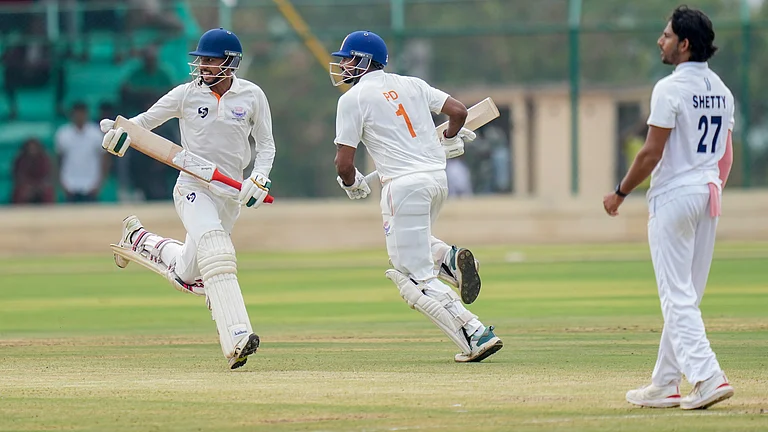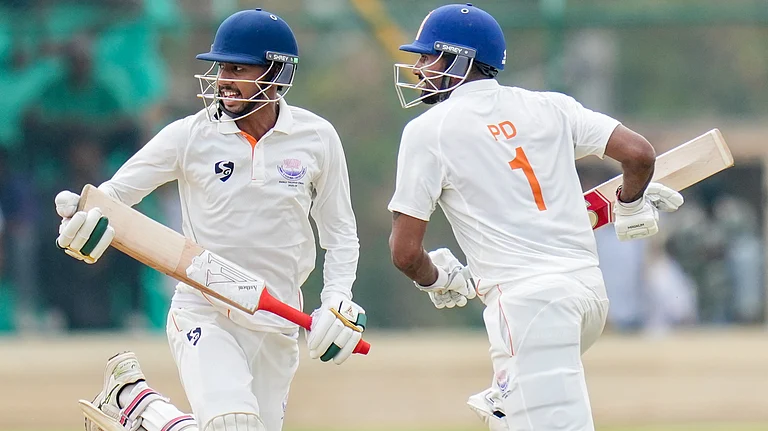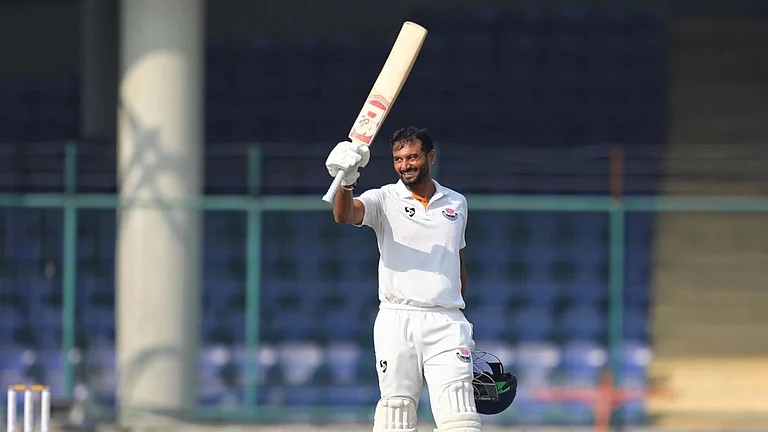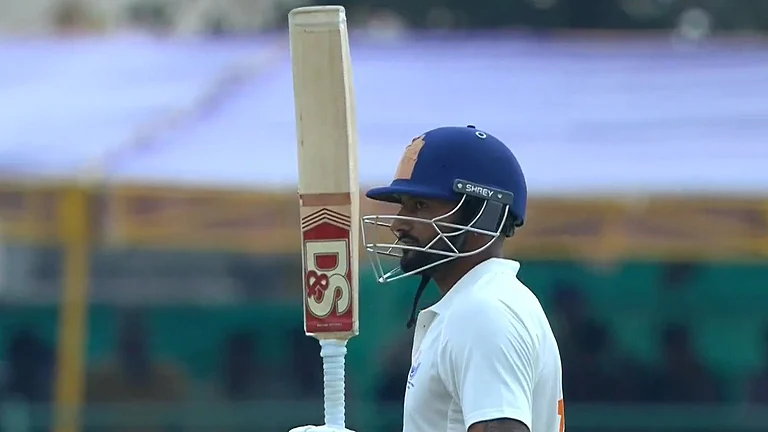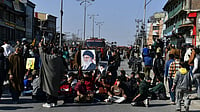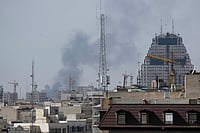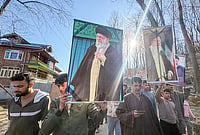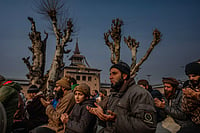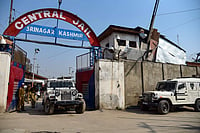A political feud has broken out in Jammu and Kashmir over whether the 21 people who died fighting Dogra rule in 1931 were “martyrs” or “terrorists”. The Bharatiya Janata Party (BJP) has described the 1931 protesters as terrorists, while Kashmir’s parties consider them martyrs and wish to pay them homage.
Before the revocation of Article 370 in 2019, both the separatists and mainstream politicians in the erstwhile state would pay their respects to those who died on July 13, 1931. There was unanimity across the political spectrum that they died fighting a just cause—opposing the feudal system.
However, the BJP government at the Centre struck July 13 off the list of public holidays and, instead, declared the September 23 birth anniversary of Dogra ruler Maharaja Hari Singh as a public holiday.
The 1931 event is filled with deep political significance for Kashmiris. On that day in July, Kashmiris protesting against the Dogra monarchy outside Kashmir Central Jail were fired upon, killing 21 people. The day is remembered as a massacre in Kashmir that sparked a wider struggle for political rights and social justice—a defining moment in a journey towards the end of Dogra rule after which nationalist sentiment and unity grew among Kashmiris.
Events of that day culminated in the formation of the Jammu and Kashmir Muslim Conference the following year, and ultimately its memory became inextricable with the themes of self-determination and Kashmir’s demands for rights and dignity—against the Dogra rulers’ oppression.
In the present times, while the BJP wants people to view the day as symbolic of Kashmir’s separatist movement in the 1990s, the ruling National Conference claims it symbolises Kashmiri self-respect and dignity. The irony is that the BJP refuses to accept or acknowledge the significance of July 13 for Kashmiris, while the Kashmiris themselves accuse the National Conference of reducing the July 13 martyrs to a political ploy.
Besides, for the BJP, celebrating Hari Singh’s anniversary is mixed up with its favourite political themes of Kashmir’s integration with India, since Hari Singh signed the instrument of accession. It tries to emphasise that the decision to accede was a legitimate decision of the region’s monarch.
Lately, former Deputy Chief Minister and senior BJP leader Kavinder Gupta has described those who died on July 13 as “terrorists”. “They were terrorists who supported the idea of [creating] Pakistan, and it is no surprise that Kashmiri political parties are hailing them,” he said, adding, “Maharaja Hari Singh was the one who signed the instrument of accession and helped integrate Kashmir with the rest of the country.”
Notwithstanding this, several political parties in Kashmir plan to pay homage to the July 13 protesters. The ruling National Conference has said that it will observe “Martyrs’ Day”, for it holds “immense historical and emotional significance for the party and the people of Jammu and Kashmir”.
“Since 2019, we have repeatedly been denied the right to commemorate this historic day—one deeply rooted in the collective memory and political conscience of our people,” the National Conference said in a statement.
The party said it has applied for permission to pay homage at the “martyrs’ graveyard” with party president and former Chief Minister Farooq Abdullah scheduled to visit with other senior party leaders.
“This year, in keeping with tradition, we have formally written to the District Magistrate, Srinagar, seeking permission to peacefully assemble and pay floral tributes at Mazar-e-Shuhada. We sincerely hope that this time our democratic and peaceful request will be respected, and that the National Conference will be allowed to mark this day in accordance with tradition and sentiment,” the party statement said.
Other political parties, including the Peoples’ Democratic Party (PDP) and new entrant Apni Party, also plan to pay homage on July 13.
“We want to pay tribute to the martyrs. We have applied for permission,” Altaf Bukhari, former Minister and Apni Party president, told reporters at a party function.
Apni Party has sought permission from the district administration to hold a prayer meeting at the “martyrs graveyard” in Srinagar on July 13.
The PDP, however, also took a potshot at the National Conference, accusing it of lacking sincerity on the issue. Former Chief Minister and PDP president Mehbooba Mufti said the ruling Omar Abdullah government’s proposal to the Lieutenant Governor to declare July 13 as a public holiday would have carried weight if the Speaker of the Assembly and National Conference MLA, Abdul Rahim Rather, had supported PDP’s resolution to do so in the Assembly.
“The Speaker’s outright rejection of the [PDP leader’s] resolution was unexpected and disappointing. Today’s exercise looks more like lip service than serious effort,” Mehbooba said.
Political commentator Noor Mohammad Baba said the tussle over July 13 must be seen in the larger political context that existed before 1947, during British colonial rule. “Jammu and Kashmir had a personalised rule, which was facilitated by the colonial administration. A movement that was part of a larger emancipatory process was against this rule and [sought] people’s empowerment,” he said.



